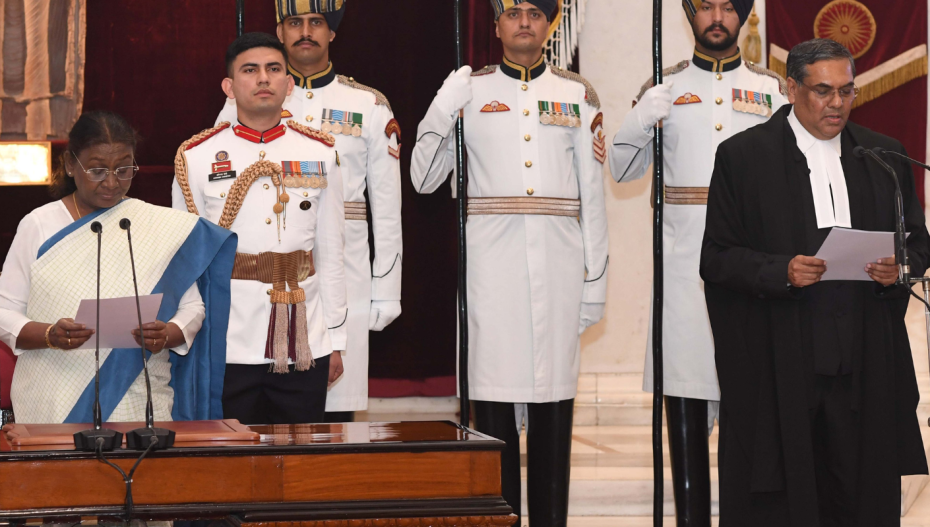Justice Sanjiv Khanna was sworn in as the 51st Chief Justice of India on Monday, succeeding Justice DY Chandrachud. President Droupadi Murmu administered the oath of office to Justice Khanna at a ceremony held at Rashtrapati Bhavan in New Delhi.
Sources claim that Justice Sanjiv Khanna has made addressing judicial pendency a top priority and has chosen to avoid the spotlight, despite his belief that judges must accept the fact that they operate in the social media age.
Appointed as a Supreme Court judge on January 18, 2019, Justice Khanna is set to retire on 13 May 2025, following a tenure of just over six months as Chief Justice. He is one of the few judges to have been appointed to the Supreme Court without first serving as Chief Justice of a high court.
In 1983, Justice Sanjiv Khanna began his career as a lawyer with the Delhi Bar Council. He first served in the district courts in the Tis Hazari complex before moving to the Delhi High Court and tribunals.
He served as the Income Tax Department’s senior standing counsel for a considerable amount of time before being named the National Capital Territory of Delhi’s standing counsel (Civil) in 2004. In addition, Justice Khanna served as an amicus curiae and an additional public prosecutor in many criminal matters in the Delhi High Court.
In 2005, he was promoted to the rank of additional judge in the Delhi High Court and in 2006, he was appointed a permanent judge. In addition to serving as a judge on the Delhi High Court, Justice Khanna was the chairman and judge-in-charge of the Delhi Judicial Academy, the Delhi International Arbitration Centre and the District Court Mediation Centres.
Currently serving as the executive chairman of the National Legal Services Authority, Justice Sanjiv Khanna served as the chairman of the Supreme Court Legal Service Committee from June 17 to December 25, 2023. Additionally, he is a member of the National Judicial Academy, Bhopal’s Governing Council.
He is the nephew of Justice H R Khanna, a former justice of the Supreme Court who participated in the historic ruling in the Kesavananda Bharati case of 1973 that established the fundamental structure doctrine.
Justice Khanna has participated in a number of major rulings while serving as an apex court justice. In the case against a journalist for his comments on a show on TV, the bench he presided over refused to dismiss the FIR, stating that Article 19(1)(a) of the Constitution cannot be used to undermine the fundamental rights protected by Article 21.
Justice Khanna provided an opposing view in the case while serving on a three-judge bench that heard petitions contesting the approval of the Central Vista redevelopment project. He also participated in a number of Constitution Bench verdicts, such as the one that invalidated the 2018 electoral bonds scheme and upheld the abrogation of Article 370 of the Constitution.
Additionally, he participated in the recent majority verdict in the minority status determination case of Aligarh Muslim University (AMU).
Also Read: Five Indian Artists, Including Ricky Kej and Anoushka Shankar, Receive Grammy Nominations












